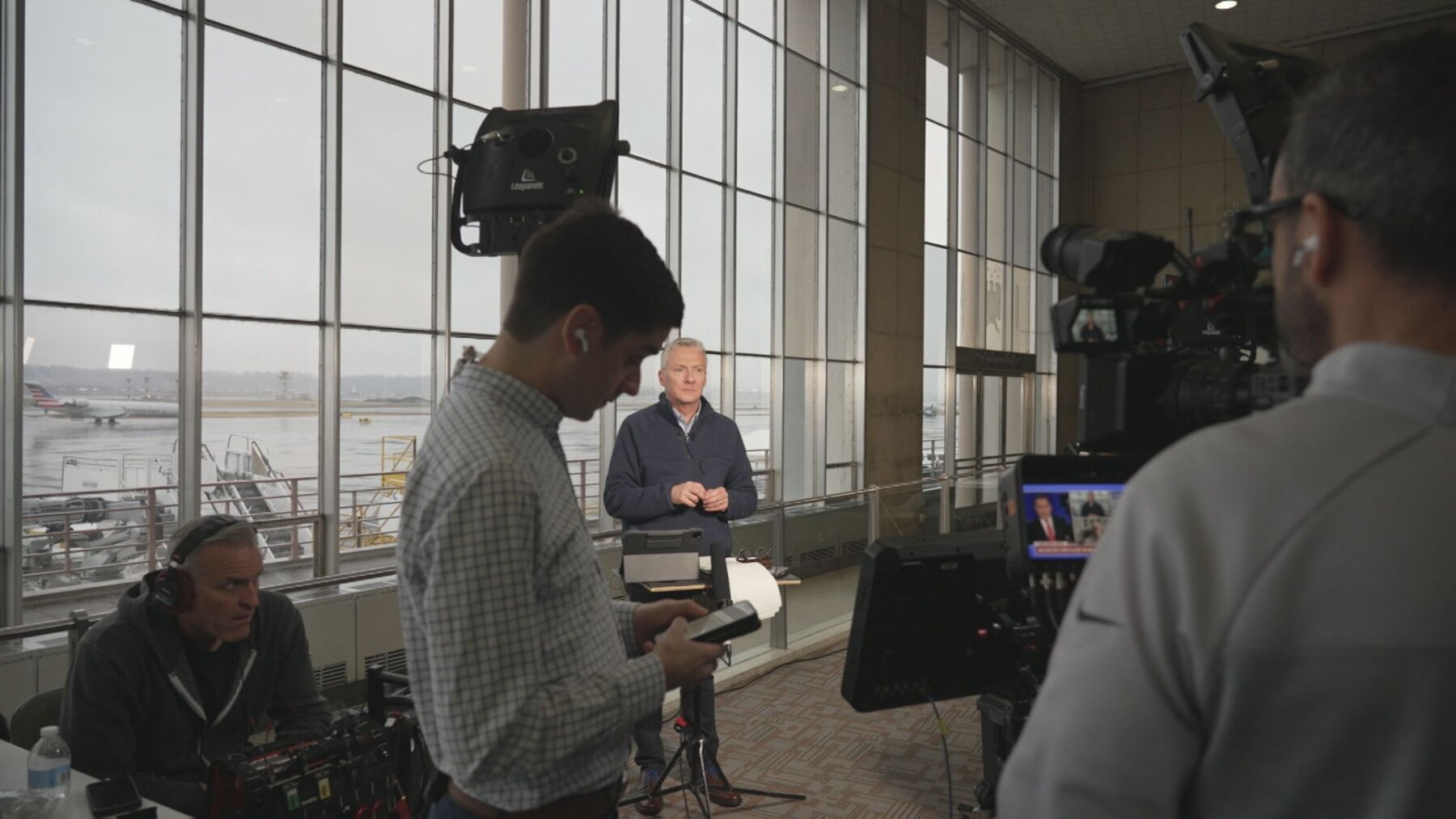When an American Eagle passenger jet and an Army helicopter collided over the Potomac River near Washington, D.C., on Jan. 29, Americans had questions: How did this happen? Did anyone survive? Who were the victims?
NBC News crews worked around the clock to provide answers, as investigation updates came in fast and furious.
“This is a major breaking story, and the facts are changing constantly, and new information is coming at us constantly,” NBC News senior correspondent Tom Costello said. “It’s like a fire hose.”
NBCU Academy followed Costello’s team — including NBC News producer Gary Grumbach, NBC News audio operator Frank Ringo and NBC News camera operator Brian Iacone — to get their tips on covering breaking news, fact-checking information quickly and preparing to sprint out the door at a moment’s notice. Watch the video above or read their tips below.
How do you balance reporting breaking news quickly with slowing down to verify that information is accurate?
Tom Costello, NBC News senior correspondent: The first thing you’re looking for when you come to a breaking news story are the basics: who, what, when, where, why, how. You pick up the phone and you call people that you know are going to give you that information; we have aviation experts who we have vetted. Don’t jump to conclusions based on the early reports, based on police scanner activity, based on what other people are reporting.

Gary Grumbach, NBC News producer: In breaking news, you are inundated with information at all times. It’s so important to try to distill it down to what really matters for this moment: What do I need to be paying attention to?
Don’t rush with the first information you get, because it’s often incorrect or incomplete. I think the first post that went out [about the crash] was that a small aircraft [was involved]. That was obviously not the case here. You need to double-check with your sources. Understand that in the heat of the moment, the information may not be accurate, or it may not be full of context.
NBC News quickly got to work covering this accident. How did you prepare?
Frank Ringo, NBC News audio operator: It was my day off. I got a call about 1 p.m.: “Hey, can you get to D.C. tonight and work tomorrow and through the weekend and for as long as we need?”
My job was to do a check-in mentally. What’s the status of my gear? What am I going to need? What’s going to be the weather? Is it going to be cold, is it going to be wet? I look up the weather forecast, and while I’m doing that, simultaneously or in conjunction, I’m booking a flight, getting a hotel, making sure I got a rental car, and reaching out to my camera operator to make sure that we are communicating.
As news constantly evolves, how are you writing or rewriting your own stories for “Nightly News,” which has a hard deadline? Take me through the day of the crash.
Costello: We go on the air for “NBC Nightly News” at 6:30 p.m., but the last National Transportation Safety Board news conference is supposed to start at 5:30. I bet it’s going to be late, so I’ve already had to write an entire script leaving holes to plug in for whatever the NTSB says.
I have an idea of what they’re going to say, because I’ve been talking to them off-the-record all day, but I don’t know for sure. We’ve got to be prepared to, at the very last minute, change the script, change our approach to the story based on whatever headlines come out of this news conference.
You’ve got to be in your head constantly thinking about the organization of your script, of what you’re going to say on the newscast and prioritize it as you go. Throughout the day, I’m triaging the order of the story: What’s most important? What is the headline based on the best video or the best information? How do I tell that in a concise, powerful manner?
What are your tips for reporting on tragedy?
Costello: I have spent a lot of time over my career interviewing victims’ families. It is heartbreaking. I often find that if they come to us, they want to talk or they are anxious and eager to tell the world about their family member or friend and put a human face on it.
For me, personally, I am very cautiously gentle if I ever approach a family. If they say no, I’d rather not [push]. For me, that’s it. End of discussion.
You have to try to keep your emotions in check, because my purpose is to provide as much accurate and factual information as possible and allow the families the dignity and the right to express emotion if they want to. I don’t want to steal that from them.



